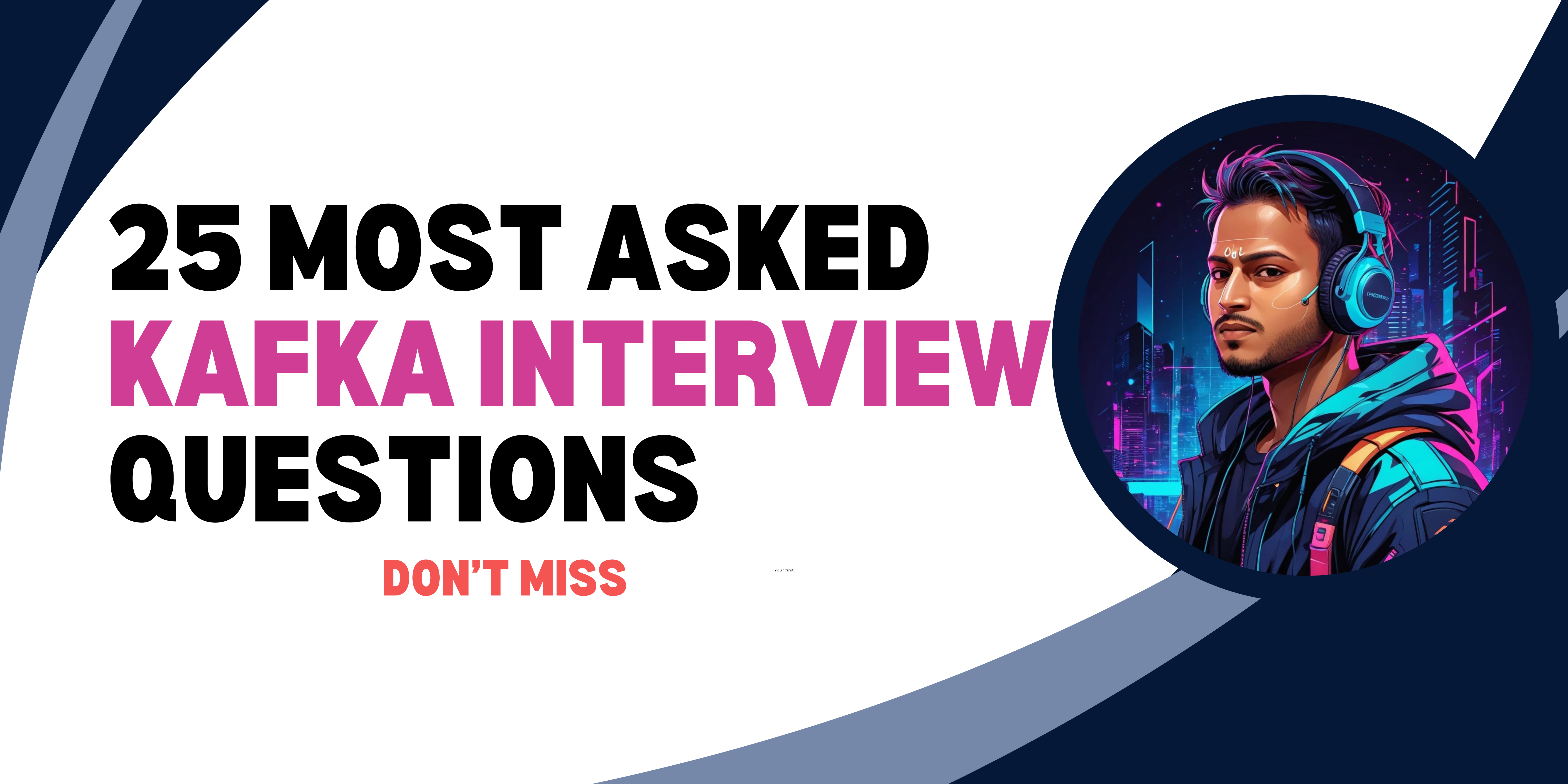🚀 Introduction
If you’re preparing for a backend or data engineering interview in 2025, chances are Apache Kafka is on the list of technologies you’ll be asked about. Whether you’re a Java/Spring Boot developer, a cloud engineer, or someone breaking into the world of real-time data pipelines, Kafka is a must-know skill.
Having helped multiple developers crack product-based interviews, I’ve compiled a list of the top 25 Kafka interview questions that are most frequently asked — especially for candidates with 1–6 years of experience. These questions start from the basics and gradually dive into advanced, system design-level concepts.
Let’s break them down so you can feel fully prepared and confident.
🟢 Beginner-Level Kafka Interview Questions
Starting with the fundamentals — these are the questions that test your basic understanding of how Kafka works and where it fits into the tech ecosystem.
- What is Apache Kafka? What are its primary use cases?
Understand Kafka as a distributed event streaming platform, not just a messaging queue. - Explain the core components of Kafka: broker, topic, partition, producer, consumer.
These are the building blocks — know them inside out. - What is a Kafka Topic and how is it different from a Queue?
Kafka topics support publish-subscribe — unlike queues, multiple consumers can read the same message. - What is a Partition in Kafka and why is it important?
Partitions enable Kafka to scale and process data in parallel. - What is a Kafka Consumer Group and how does it work?
Consumer groups provide horizontal scalability and fault tolerance. - How does Kafka ensure message durability and fault tolerance?
Think of replication, leader-follower design, and acknowledgment mechanisms. - What is Kafka’s message retention policy and how is it configured?
Important for use cases like reprocessing or delayed consumption. - How does Kafka handle backpressure and consumer lag?
You should know how consumer lag is monitored and what tools are available. - How are messages delivered in Kafka (at-most-once, at-least-once, exactly-once)?
These delivery semantics often trip up even experienced developers. - What are offsets in Kafka and how are they managed?
Make sure you understand both manual and automatic offset commits.
🟡 Intermediate-Level Kafka Interview Questions
Now let’s go a little deeper. These questions evaluate your hands-on experience, troubleshooting skills, and ability to design reliable systems using Kafka.
- What is the difference between Kafka and traditional messaging systems like RabbitMQ?
Focus on pull vs push, scalability, and real-time streaming support. - What happens if a Kafka consumer fails while processing a message?
Will the message be lost? Reprocessed? Know the lifecycle. - What is the role of ZooKeeper in Kafka? Why is it being replaced by KRaft?
This is frequently asked — especially in interviews with modern Kafka setups. - Explain Kafka Producer ACKS and retries mechanism.
This affects data loss and performance. Know theacks=0, 1, allsettings. - How does Kafka ensure ordering of messages?
You must understand partition-level ordering and implications in multi-threaded consumers. - What is idempotency in Kafka Producers and why is it important?
Interviewers love this one — especially in financial/critical systems. - How can we monitor Kafka? What metrics are crucial?
Tools like Grafana, Prometheus, and metrics like consumer lag, throughput, and ISR count. - How does Kafka handle leader election for partitions?
Know about partition leaders, followers, and how failovers are handled. - What are the differences between Kafka Connect and Kafka Streams?
Connect is for data integration; Streams is for real-time processing. - How do you handle schema evolution in Kafka messages (e.g., using Avro + Schema Registry)?
Crucial if you’re working with data contracts and versioning.
🔴 Advanced-Level Kafka Interview Questions
These questions are commonly asked in system design rounds, or if you’re applying for senior backend/data engineer roles.
- How does Exactly-Once Semantics (EOS) work in Kafka?
Be ready to explain idempotent producers, transactional APIs, and consumer isolation levels. - Explain how Kafka achieves high throughput and horizontal scalability.
Touch on batching, zero-copy, partitions, replication, etc. - What is Kafka Streams and how is it different from Apache Flink or Spark Streaming?
Interviewers want to see how deep your streaming ecosystem knowledge goes. - How does Kafka MirrorMaker 2.0 work for cross-cluster replication?
Relevant in multi-region deployments or DR strategy discussions. - Design a real-time data pipeline using Kafka — what architecture and components would you use?
Bring everything together: producers, Kafka, Stream processing, storage, and monitoring.
🎯 Wrapping Up: Master Kafka and Crack That Interview
Learning Kafka is no longer optional if you’re aiming for roles in modern backend, big data, or real-time streaming systems. These 25 questions will give you a rock-solid base to tackle technical rounds confidently and showcase not just your knowledge, but also your ability to think through real-world system challenges.
Remember: the best answers come from your experience. So don’t just memorize — implement, break things, and debug them.

